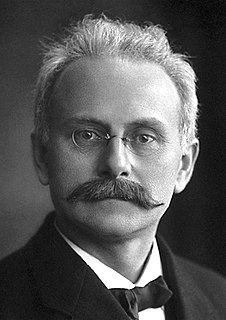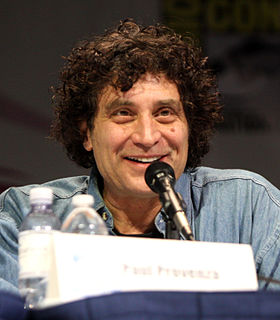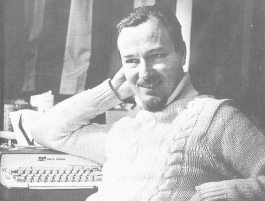A Quote by Johannes Stark
The question of the composition of perceptible objects is one which already occupied the mind of the ancient Greeks.
Quote Topics
Related Quotes
In some exquisite critical hints on "Eurythmy," Goethe remarks, "that the best composition in pictures is that which, observing the most delicate laws of harmony, so arranges the objects that they by their position tell their own story." And the rule thus applied to composition in painting applies no less to composition in literature.
I believe in logic, the sequence of cause and effect, and in science its only begotten son our law, which was conceived by the ancient Greeks, thrived under Isaac Newton, suffered under Albert Einstein...
That fragment of a 'creed for materialism' which a friend in college had once shown him rose through Donald's confused mind.
Experts in ancient Greek culture say that people back then didn't see their thoughts as belonging to them. When ancient Greeks had a thought, it occurred to them as a god or goddess giving an order. Apollo was telling them to be brave. Athena was telling them to fall in love. Now people hear a commercial for sour cream potato chips and rush out to buy, but now they call this free will. At least the ancient Greeks were being honest.
Know that for the human mind there are certain objects of perception which are within the scope of its nature and capacity; on the other hand, there are, amongst things which actually exist, certain objects which the mind can in no way and by no means grasp: the gates of perception are closed against it.
What is remarkable about the Greeks - even pre-philosophically - is that despite the salience of religious rituals in their lives, when it came to the question of what it is that makes an individual human life worth living they didn't look to the immortals but rather approached the question in mortal terms. Their approaching the question of human mattering in human terms is the singularity that creates the conditions for philosophy in ancient Greece, most especially as these conditions were realized in the city-state of Athens.
Eratosthenes was the director of the great library of Alexandria, the Centre of science and learning in the ancient world. Aristotle had argued that humanity was divided into Greeks and everybody else, whom he called barbarians and that the Greeks should keep themselves racially pure. He thought it was fitting for the Greeks to enslave other peoples. But Erathosthenes criticized Aristotle for his blind chauvinism, he believed there was good and bad in every nation.
Composition is a side issue. Its role in my selection of photographs is a negative one at best. By which I mean that the fascination of a photograph is not in its eccentric composition but in what it has to say: its information content. And, on the other hand, composition always also has its own fortuitous rightness.
The laws of thought are natural laws with which we have no power to interfere, and which are of course not to be in any way confused with the artificial laws of a country, which are invented by men and can be altered by them. Every science is occupied in detecting and describing the natural laws which are inflexibly observed by the objects treated in the Science.




































